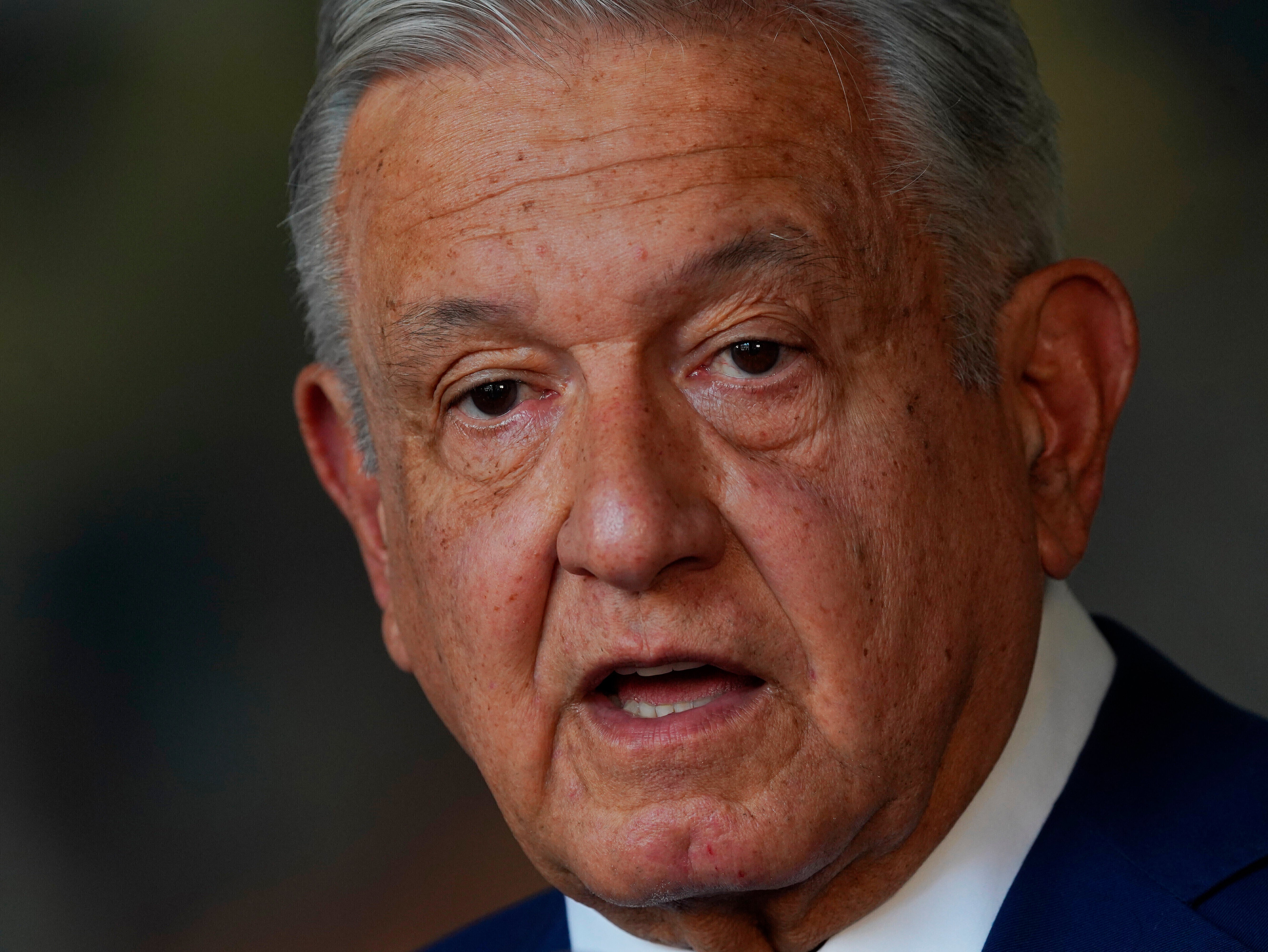Mexican president calls on civilians not to support drug cartels even if they pressure them
Mexico's president is calling on citizens not to support drug cartels or oppose the installation of National Guard barracks, after a number of videos surfaced showing residents cheering convoys of cartel gunmen

Mexico’s president called on citizens Friday not to support drug cartels, or oppose the installation of National Guard barracks, after a number of videos surfaced showing residents cheering convoys of cartel gunmen.
Several videos have been posted on social media in recent weeks of villages in southern Chiapas, showing farmers lining roadways near the border with Guatemala and cheering convoys of Sinaloa Cartel gunmen.
The Sinaloa and Jalisco cartels are fighting turf battles in the region to control the smuggling of drugs and migrants, and income from extortion.
“I want to call on people not to support the gangs,” President Andrés Manuel López Obrador said Friday, noting that he understood that the gangs may be pressuring civilians to appear in such videos “out of fear” of reprisals.
López Obrador acknowledged the cartels have mounted a public relations effort.
“They are going to shoot videos and post them on social media, they also have propaganda operations,” the president said. “They tell people ‘line up on the highway,’ and if people don't line up, they could be subject to reprisals.”
But López Obrador also accused anybody who opposes the building of National Guard barracks in their communities of aiding the cartels.
“If they don't want the Guard to be there, they are protecting criminals,” he said.
In fact, residents of several municipalities across Mexico have opposed barracks construction for various reasons, including that they would be on environmentally sensitive or culturally significant land, or because they don’t feel the Guards’ presence helps.
López Obrador has dispatched more troops and guard officers to Chiapas in the last few months as the violence has grown worse.
Despite that, hundreds of local residents who live around the Angostura dam reservoir in Chiapas took the desperate step this week of fleeing in boats across the lake, after cartel gunmen engaged in shootouts near their homes.
“There was gunfire lasting more than a half hour, bullets hit our houses and vehicles were set on fire,” said Mauricio Gómez.
Gómez and 20 of his relatives have taken refuge in the nearby city of Comitan. “They told us we couldn't return,” he said of the cartel gunmen.
But it's not clear whether Gomez and his relatives can continue to stay in Comitan. They are staying with six other families in a house that a local resident lent them.
López Obrador has made the quasi-military National Guard the centerpiece of law enforcement in Mexico, though critics say its expansion has come at the expense of civilian police, who in many cases are better suited to investigate and prevent crime.
There is no doubt there have been incidents — especially in the western state of Michoacan — in which drug cartels have forced local residents to demonstrate against the army and National Guard, and even attack or confront federal forces.
But inhabitants in many parts of Mexico have been left under the complete domination of the cartels for years, forcing them into a form of coexistence with the gangs.
In the southern Pacific coast state of Guerrero, residents have been subjected to drug cartel extortion and violence for around two decades. On Friday, authorities found four bodies dumped on a highway near the state capital, Chilpancingo, and three other men were shot to death in a bar.
The killings were under investigation and it was not immediately clear whether the deaths were related to ongoing drug gang turf battles in Chilpancingo. The city's mayor was seen in a video posted on social media earlier this year sitting a restaurant chatting calmly with the leaders of one of the gangs.
Bookmark popover
Removed from bookmarks